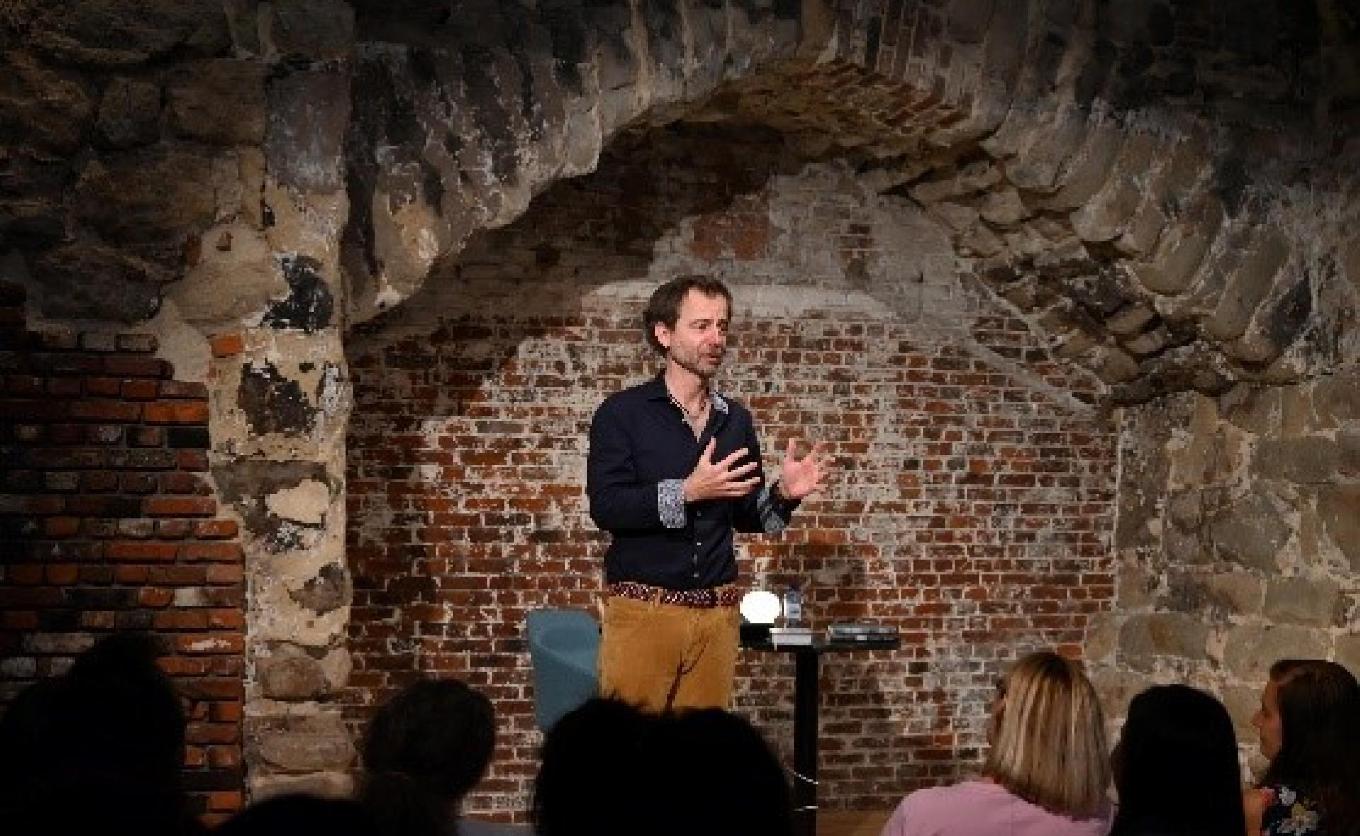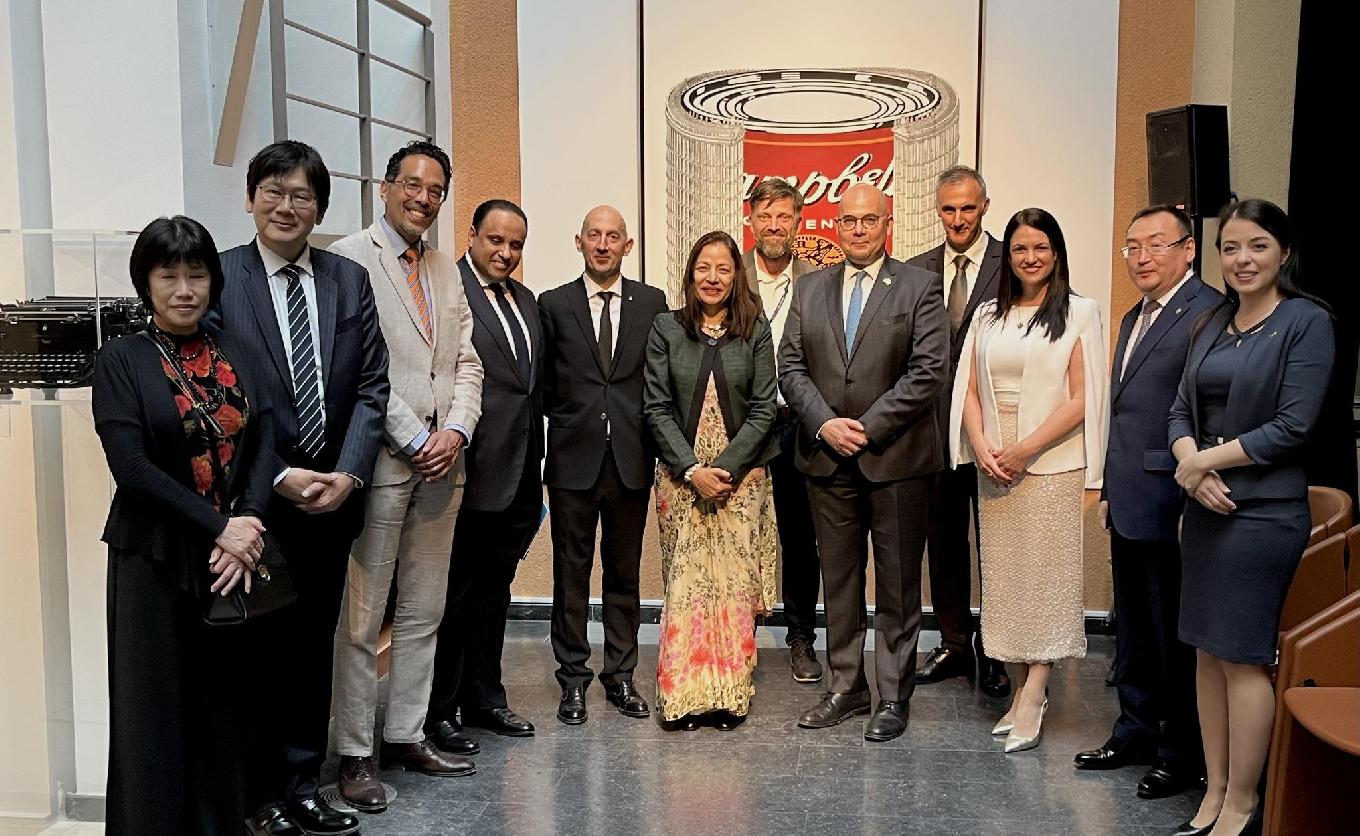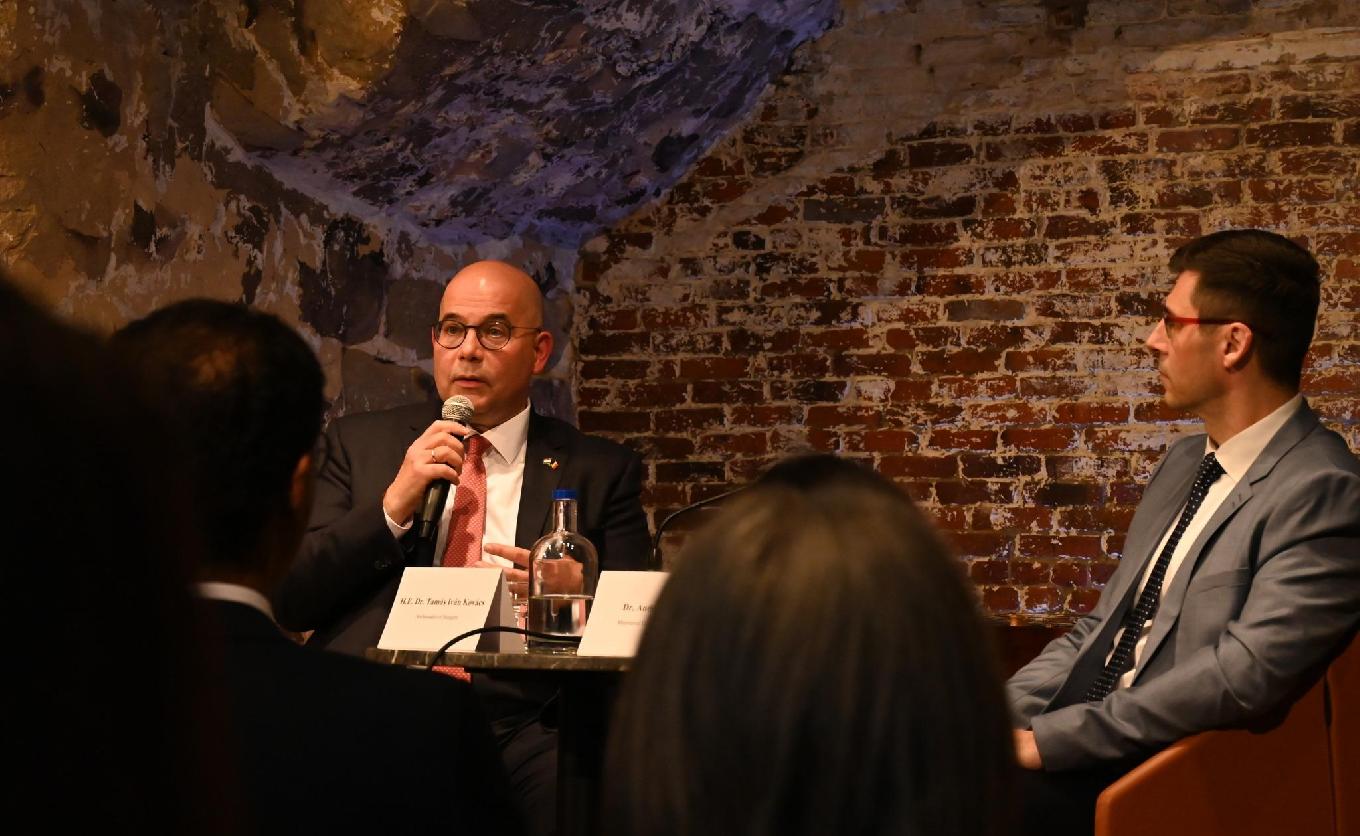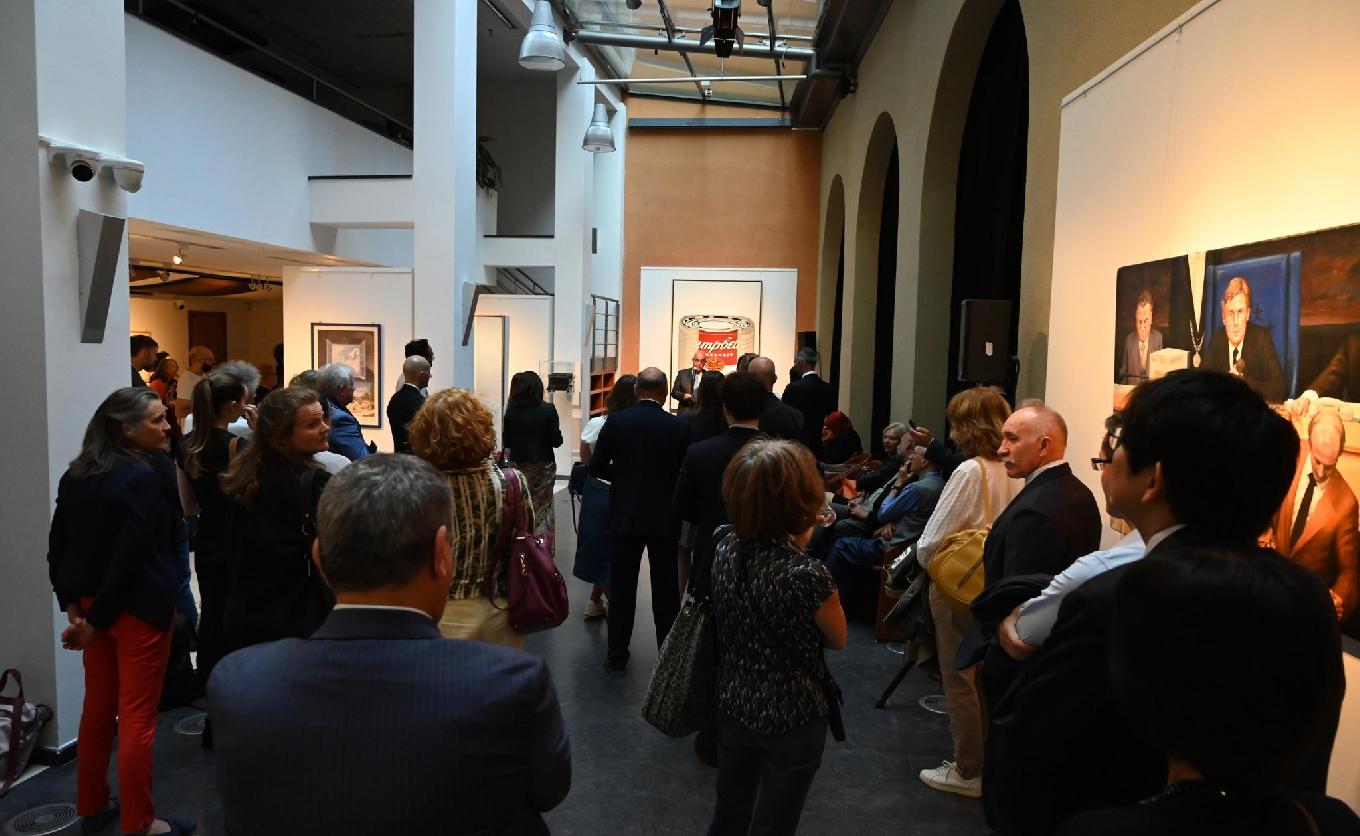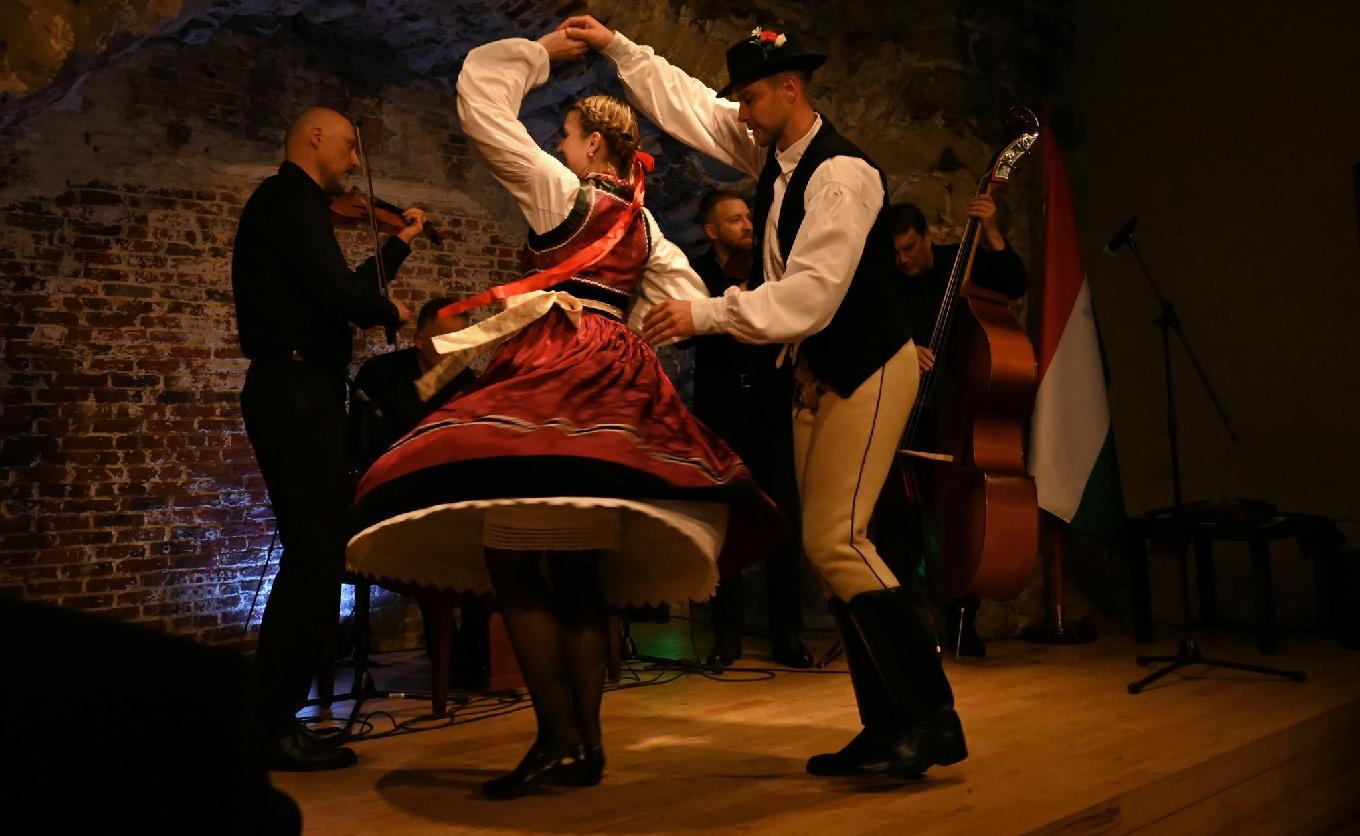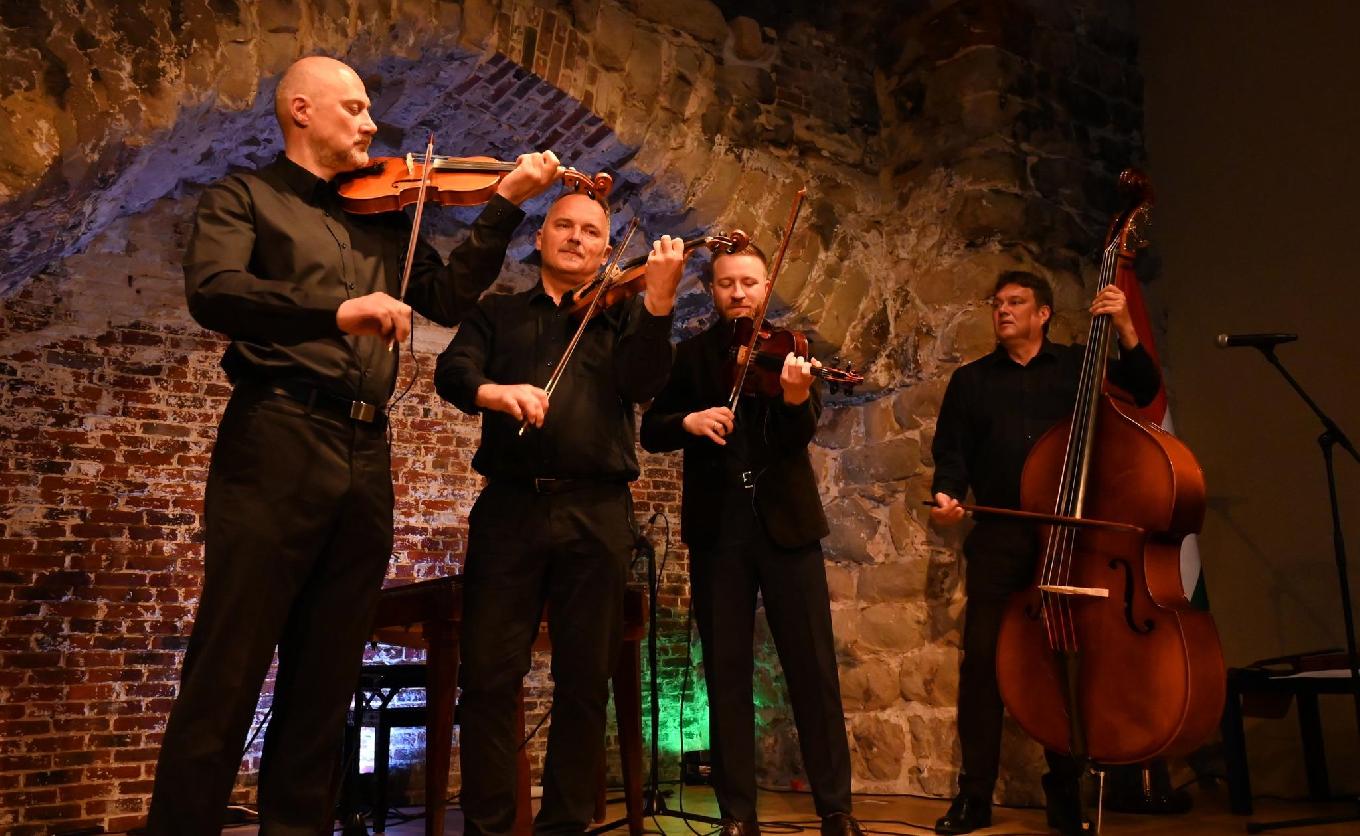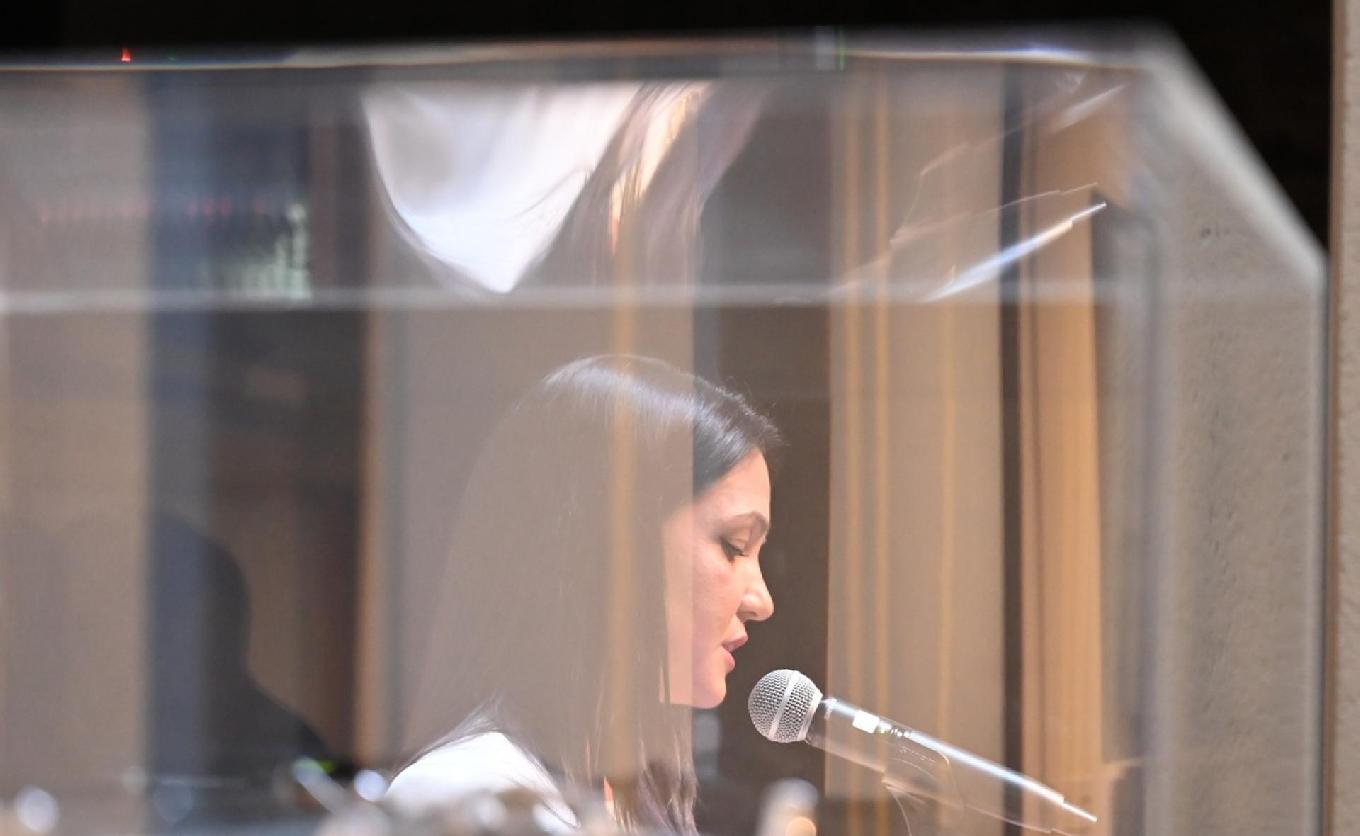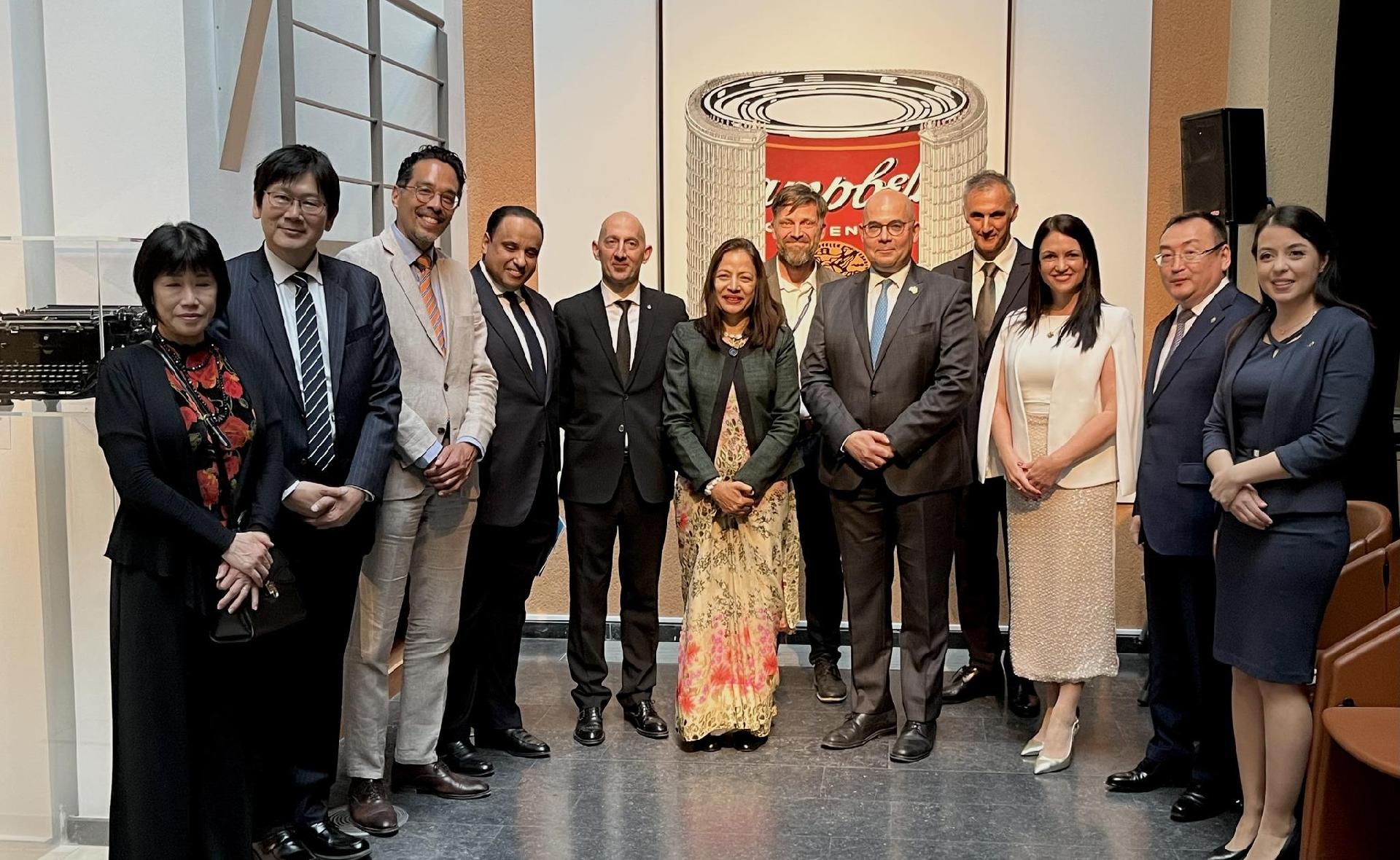
A Vibrant Hungarian Cultural Scene in Brussels
The Liszt Institute Brussels draws the attention of the international audience in Brussels with its outstanding Hungarian cultural presence. Under the title My Father Sent a Message (Apám üzent), they organised a literary evening with Krisztián Grecsó and also held the Hungarian Film Days. With the participation of Péter Nyulász, a playful session was organised for preschoolers and young schoolchildren, and within the framework of their Hungarian-Belgian jazz club, world-famous jazz pianist Kálmán Oláh had the opportunity to introduce himself to the Belgian audience. Their exhibition Art in Democracy can be visited until September, which examines and interprets the values, challenges and social significance of democracy through selected works by European artists. The institute also hosts the Hungarian Scientists’ Club of Belgium, within the framework of which a lecture on swallowing disorders was held in June. On June 4, the Day of National Unity was celebrated with a roundtable discussion and a concert.
15 years of search, research, preparation, 3 years of specific preparation, 3 years of writing, and 21 sheets in length – these are roughly the numbers behind the new Grecsó novel. Krisztián Grecsó's new major novel My Father Sent a Message (Apám üzent) is both a family and identity novel, a captivating Carpathian Basin peasant epic. At the sold-out book launch, the author spoke at the Liszt Institute Brussels about genealogy, generational debts, encounters and romances. Krisztián Grecsó was born in 1976 in Szegvár, and currently lives in Újlipótváros. He completed primary school in his home village, then graduated from Batsányi János Secondary Grammar School in Csongrád. He completed Kőrösi Csoma Sándor College in Békéscsaba in 1997. He graduated from the Hungarian language department of József Attila University in 2001. Since 2009, he has been leading the prose section of the newspaper Life and Literature (Élet és Irodalom). His novels have been published in Arabic, Czech, German, Croatian, Polish, Slovenian, Turkish and Russian. He has written screenplays, several plays and librettos. He has written lyrics for well-known bands and singers. Before his performance, Krisztián Grecsó also held an unconventional literature class at the European School in Brussels in front of an audience of 85.
Between May16-18, film lovers were able to discover the power and creativity of Hungarian cinema through the eyes of female directors at the Hungarian Film Festival. Their unique cultural event Women Behind the Camera in Brussels was organised with the support of the Hungarian National Film Fund and offered a rich film programme ranging from comedy to family sagas to works with psychological depth. The following films were screened in Hungarian with English subtitles: Running Out of Air (Elfogy a levegő, Dir: Katalin Moldvai, 2023), Spiral (Spirál, Dir: Cecília Felméri, 2020), Afterlife (Utóélet, Dir: Zomborácz Virág, 2014), Mom and Other Loonies in the Family (Anyám és más futóbolondok a családból, Dir: Ibolya Fekete), Eden (Éden, Dir: Ágnes Kocsis, 2020), We Started Together (Együtt kezdtük, Dir: Yvonne Kerékgyártó, 2022) and Aurora Borealis (Dir: Márta Mészáros, 2017). The extraordinary Hungarian Film Days were a great success in Brussels.
On 17 May, Péter Nyulász held playful sessions for preschoolers with nursery rhymes, poems, plenty of fun, some movement, cartoons and guessing games. On the same day, he also held a session for young schoolchildren, during which the children got to know the Berger Sniff Service (Berger Szimat Szolgálat) team and, through them, the nine Hungarian dog breeds, and they also gained insight into the mysteries of the writing profession. Péter Nyulász (1968), IBBY award-winning author, graduated in history and geography in Debrecen, and then worked for a decade as a reporter for the Hungarian State Radio. Based on a legend from Balaton, he created an adventurous children's novel trilogy. With the first volume (Helka - The Shadows of Burok Valley), he won the 2011 Children's Book of the Year award. In autumn 2016, he launched a detective series entitled BerGer Sniff Service, set in real locations.
On May 20, a Hungarian-Belgian Jazz Club was held at the Liszt Institute Brussels, where Hungary was represented by internationally renowned jazz pianist Kálmán Oláh, who masterfully combines elements of jazz, folk music and contemporary classical music. He has received numerous prestigious awards, including the Grand Prize at the 2006 Thelonious Monk International Jazz Composers Competition. His partners were Tamás Zsári (saxophone), Bart De Nolf (double bass), and Bruno Castellucci (drums). Kálmán Oláh also gave a master class at the Royal Conservatory of Brussels for 18 conservatory students.
On May 20, 2025, an exhibition opened at the Liszt Institute Brussels entitled Art in Democracy, featuring works from the European Parliament's contemporary art collection – including Hungarian artworks. The exhibition examines and interprets the values, challenges and social significance of democracy through selected works by contemporary European artists. Drawing from the European Parliament's collection, it presents powerful, thought-provoking works addressing fundamental democratic principles such as freedom of speech, civic participation, human rights and equality. Each artwork represents the personal and critical stance of its creator, a kind of visual manifesto in defence of democratic ideals. The exhibition's narrative also raises important questions such as the relationship between citizens and institutions, the responsibility of the media, the limits of state power, and the impact of migration and global movements. The exhibition showcases works by artists from nine European countries – Poland, Germany, Bulgaria, the United Kingdom, the Netherlands, Slovakia, Estonia and Sweden – offering diverse and critical perspectives on the state of democracy across the continent. From the European Parliament's collection, Hungarian exhibits include Prime Minister József Antall's typewriter, Gábor Veres's bust of József Antall, and Attila Szűcs's painting Swimming Woman with Stripes of Light (Úszó nő fénycsíkokkal). The exhibition can be visited until September.
On 27 May, the Institute once again hosted the Hungarian Scientists’ Club of Belgium. At the event Beyond the Bite – An Introduction to the World of Swallowing Disorders (Túl a falaton - bevezetés a nyelészavarok világába), the topic was dysphagia (swallowing disorder): how the swallowing process works, when to suspect dysphagia, what symptoms to watch out for, what consequences untreated dysphagia may have, and what therapeutic options are available. The aim of the lecture was to present the problem in a comprehensible and human-centred way – whether for those affected, relatives, or anyone interested in how to help when someone "cannot swallow their food". Kinga Naschauer is a speech, language and swallowing therapist by training. She is currently pursuing master’s studies at KU Leuven University in Belgium. Her professional focus is on the diagnosis and treatment of swallowing disorders.
On 4 June 2025, the Day of National Unity was celebrated jointly organised by the Liszt Institute Brussels and the Embassy of Hungary in Brussels, with the intention of presenting the idea of Hungarian national unity to the international audience living in Belgium in a worthy manner. The ceremony was opened by Zsófia Kovács, Director of the Liszt Institute, and Dr Tamás Iván Kovács, Ambassador of Hungary to Belgium. The event began with a roundtable discussion on the complexity of cultural and national identity and the challenges of preserving it. The discussion featured Ambassador Dr Tamás Iván Kovács and Dr Andor Deli, Ministerial Commissioner responsible for European connectivity and former Member of the European Parliament. Following the roundtable, the Üsztürü folk music band entertained the audience with a concert. The high attendance (130 participants) confirmed that the authentic transmission of Hungarian cultural values is highly suitable for fostering dialogue.

